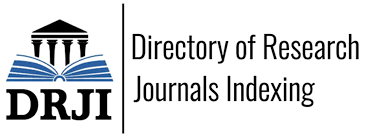Mukti Ali's scientific-cum-doctrinaire approach and Ibn Arabi's wahdat al-adyan in strengthening religious moderation
DOI:
https://doi.org/10.18326/ijoresh.v2i2.158-179Keywords:
Scientific-cum-doctrinaire, Wahdatul adyan, Pluralism, Religious moderationAbstract
A conservative adherence to religious beliefs and fanaticism has the potential to result in a unilateral judgment toward other faiths. At the exoteric level, religions represent different ways of approaching the divine. However, when one sees this from an esoteric point of view, all these religions aim for one divinity. This esoteric perspective is in line with the idea of religious pluralism in the modern world. However, long before that, Ibn Arabi had already discussed this idea. Firstly, Ibn Arabi talked about his philosophy of divinity. God, on one hand, is One, unreachable, transcendent, but also as the resembling, close, immanent. From the immanent aspect, God then manifests and reveals Himself continuously, resulting in diverse beings, including religion. However, in this research, Ibn Arabi's ideas were found to be only ideological-apologetic. Therefore, the author collaborates them with Mukti Ali's ideas, which are modern and methodological, combining various approaches, both normative and scientific, in the study of religious moderation called scientific-cum-doctrinaire. The method used in this research is descriptive-collaborative. The scientific-cum-doctrinaire is used to investigate Islam and other religions, with the expectation that it will foster interfaith literacy, encourage inter-religious cooperation, and contribute to the promotion of religious moderation. In this light, the parallel between Mukti Ali and Ibn Arabi becomes apparent.
Downloads
Published
How to Cite
Issue
Section
License
Copyright
Authors who publish with Indonesian Journal of Religion, Spirituality, and Humanity agree to the following terms:
- Authors retain copyright and grant the journal right of first publication with the work simultaneously licensed under a Creative Commons Attribution License (CC BY-SA 4.0)that allows others to share the work with an acknowledgement of the work's authorship and initial publication in this journal.
- Authors have the right to enter into separate, additional contractual arrangements for the non-exclusive distribution of the journal's published version of the work (e.g., post it to an institutional repository or publish it in a book), with an acknowledgment of its initial publication in this journal.
- Authors are permitted and encouraged to post their work online (e.g., in institutional repositories or on their website) prior to and during the submission process, as it can lead to productive exchanges, as well as earlier and greater citation of published work.
Licensing
This work is licensed under a Creative Commons Attribution-ShareAlike 4.0 International License.









